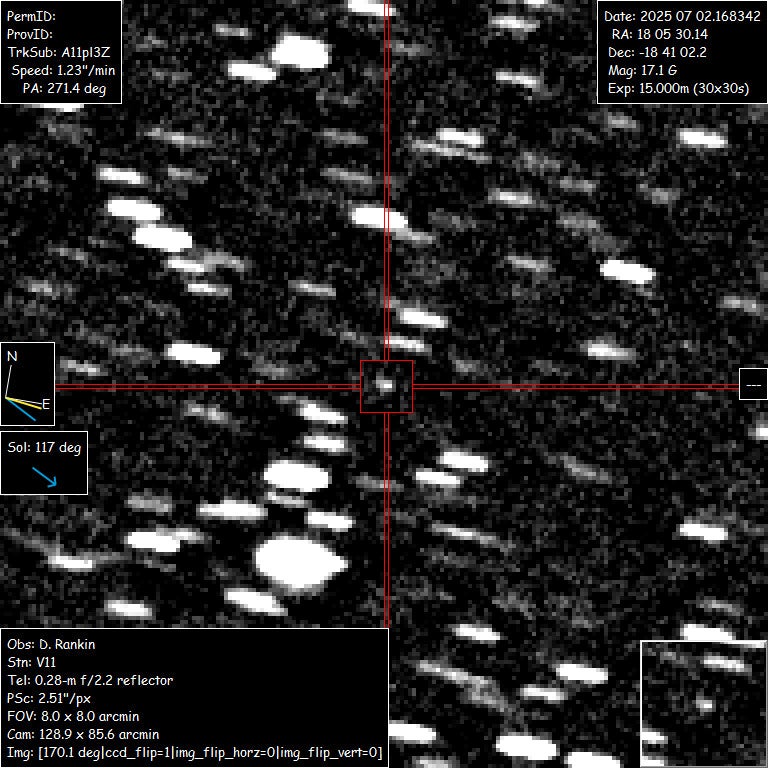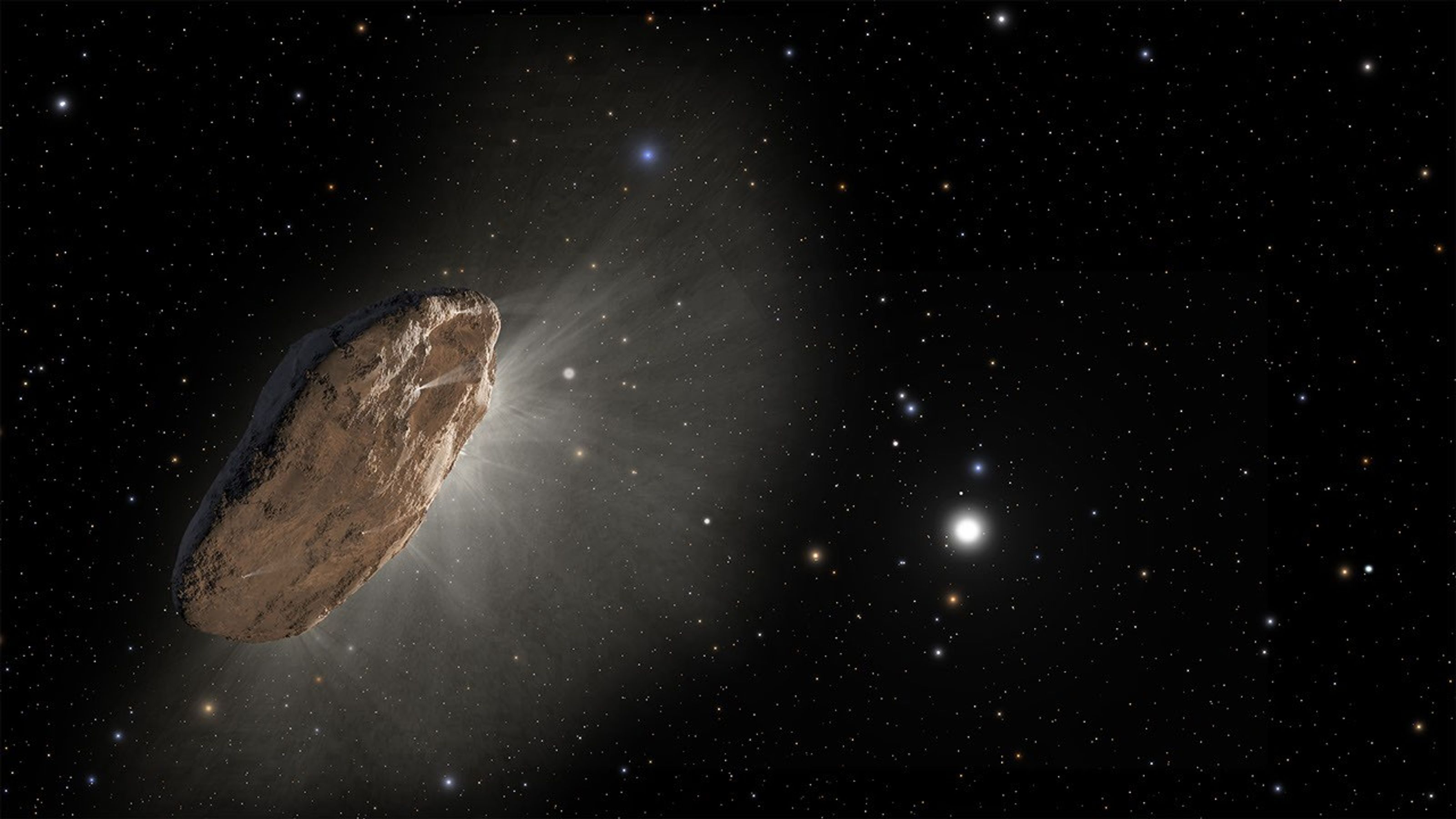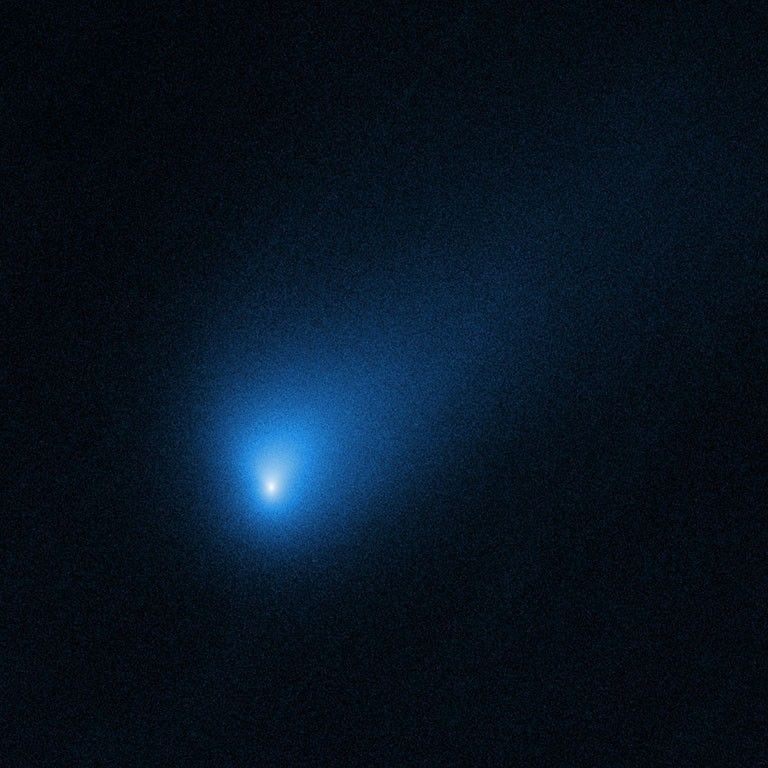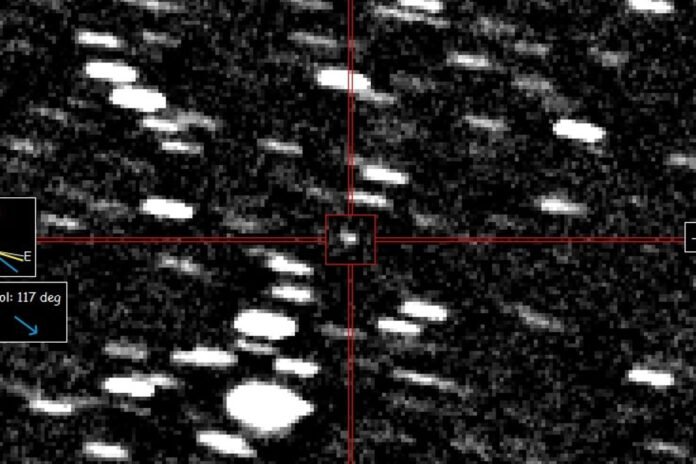Astronomers may have just discovered a new interstellar object passing through our solar system.
The object, a celestial body from another star system, was discovered on Tuesday by the University of Hawaii’s Asteroid Terrestrial-impact Last Alert System, or ATLAS, team. At this point, it remains unclear what the object may be or look like as it moves near Jupiter.
Now, scientists are checking to confirm their findings.
“ESA’s Planetary Defenders are observing the object, provisionally known as #A11pl3Z, right now using telescopes around the world,” the European Space Agency said in a social media post on Wednesday. The National Aeronautics and Space Administration told The Associated Press that it is monitoring the situation.
David Rankin, of the University of Arizona’s Catalina Sky Survey, said in posts on BlueSky that follow-up observations were made not long after the discovery. A precovery — observations from archival images in which the object was not originally discovered — from CalTech’s Zwicky Transient Facility hinted at the presence of an interstellar object.

“After a few more precovery observations, and follow-ups, it became clear this object is on a hyperbolic trajectory through the solar system,” Rankin wrote.
Since then, new observations have been “rolling in,” helping astronomers to better determine its orbit.
Rankin noted that the first known interstellar object to visit our solar system was ‘Oumuamua, which was spotted in 2017.

Up to one-quarter mile-long and 10 times as long as it is wide, its resembles a rocky cigar with a reddish hue. Its aspect ratio, which is greater than that of any asteroid or comet observed in our solar system to date, even led to speculation that it could be an alien spacecraft.
Observations then suggested that it had been wandering through our Milky Way galaxy for hundreds of millions of years before its encounter with our star system, according to NASA.
The second known object was Comet 2I/Borisov, found in 2019. It is the first confirmed interstellar comet, and was later captured by the Hubble Space Telescope.

Scientists believe that many more such objects regularly pass by the Earth, with a number of them flying relatively near to us each year. However, many of them go undetected because they are hard to spot and it is difficult to know for sure where they have come from.
Researchers hope to eventually learn more about them and even use them as evidence for distant star systems and planets.
They also hope to find more of them in the years to come, thanks to new and more powerful telescopes, such as the recently switched-on Vera C Rubin Observatory.






